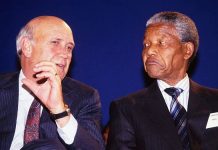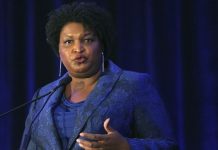Dissecting Spike Lee’s Blockbuster’BlackKklansman’
SPIKE LEE’S “BlacKkKlansman” is set in the 1970s, but it is also the first major Hollywood film to comment explicitly on Donald Trump’s presidency. In an opening segment, Alec Baldwin—a regular Trump impersonator on “Saturday Night Live”—cameos as a pompous white supremacist. Later, a young David Duke (Topher Grace), the former Grand Wizard of the Ku Klux Klan, explains that the Klan will make headway not by wearing hoods and burning crosses, but by wearing suits and seeming respectable—and by “getting the embodiment of that in the White House”. And the film finishes with clips of the far-right rally in Charlottesville, Virginia, and Mr Trump’s defence of the “very fine people” in attendance. Whatever audiences think of “BlacKkKlansman”, no one could accuse it of being too subtle.
The film, declares an opening caption, “is based on some fo’ real fo’ real shit”, which is another way of saying that Mr Lee and his three co-writers adapted it from a memoir by Ron Stallworth, a black police detective who infiltrated the Klan. Mr Stallworth himself is played with swaggering self-assurance and a sizeable Afro by John David Washington, whose father, Denzel Washington, starred in Mr Lee’s “Malcolm X” biopic. The first African-American policeman in Colorado Springs, Stallworth is desperate to get out of the records department and into action, so when he spots a Klan recruiting ad in the local newspaper, he decides on a whim to dial the number at the bottom. He is soon friendly enough with the town’s Klansmen to be invited to meet them. Stallworth keeps the ruse going by persuading his sardonic Jewish partner, Flip Zimmerman (Adam Driver), to take his place for face-to-face dealings with “the organisaton”.![]()
SOURCE ⇒ HOLLYWOODREPORTER




































